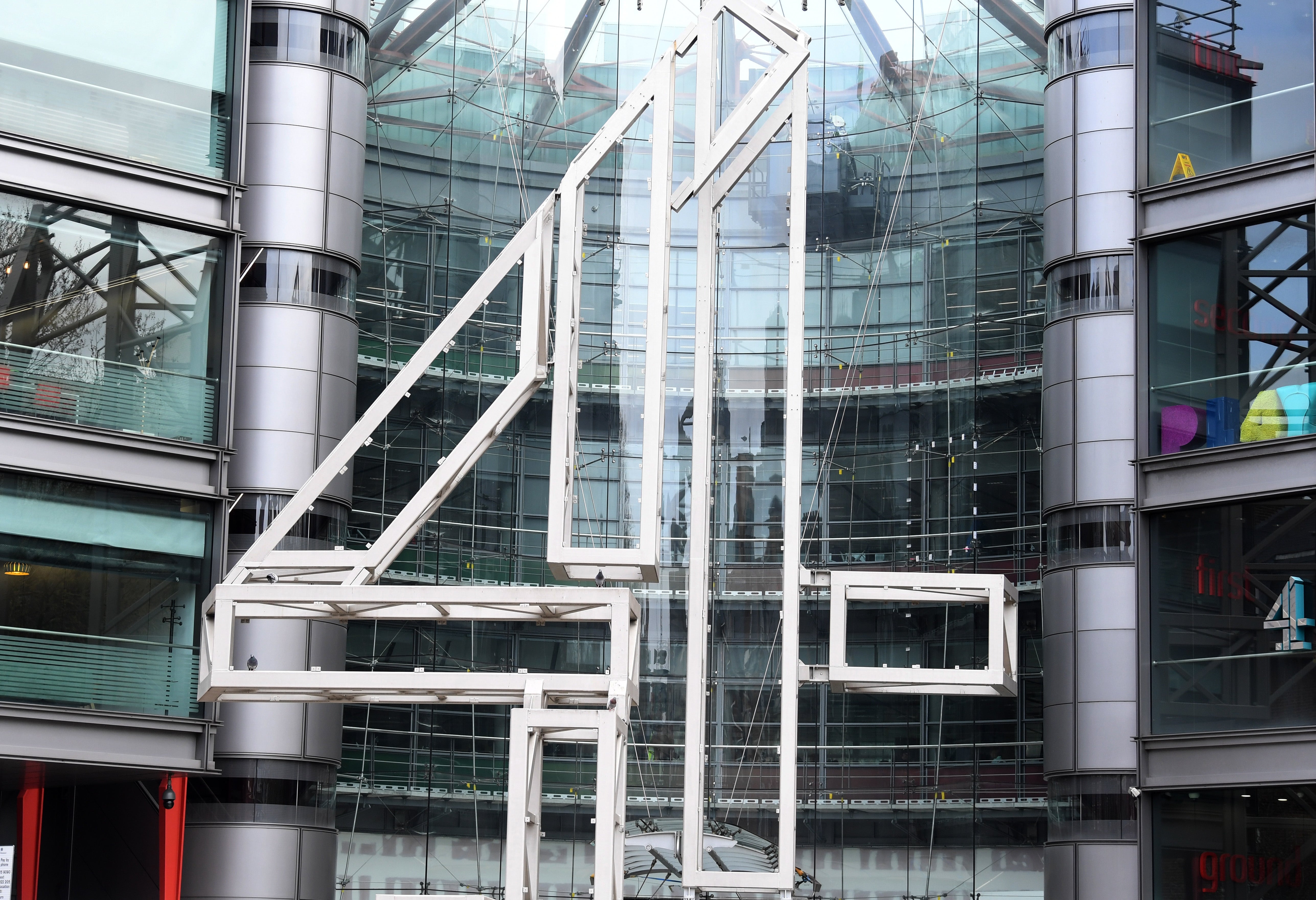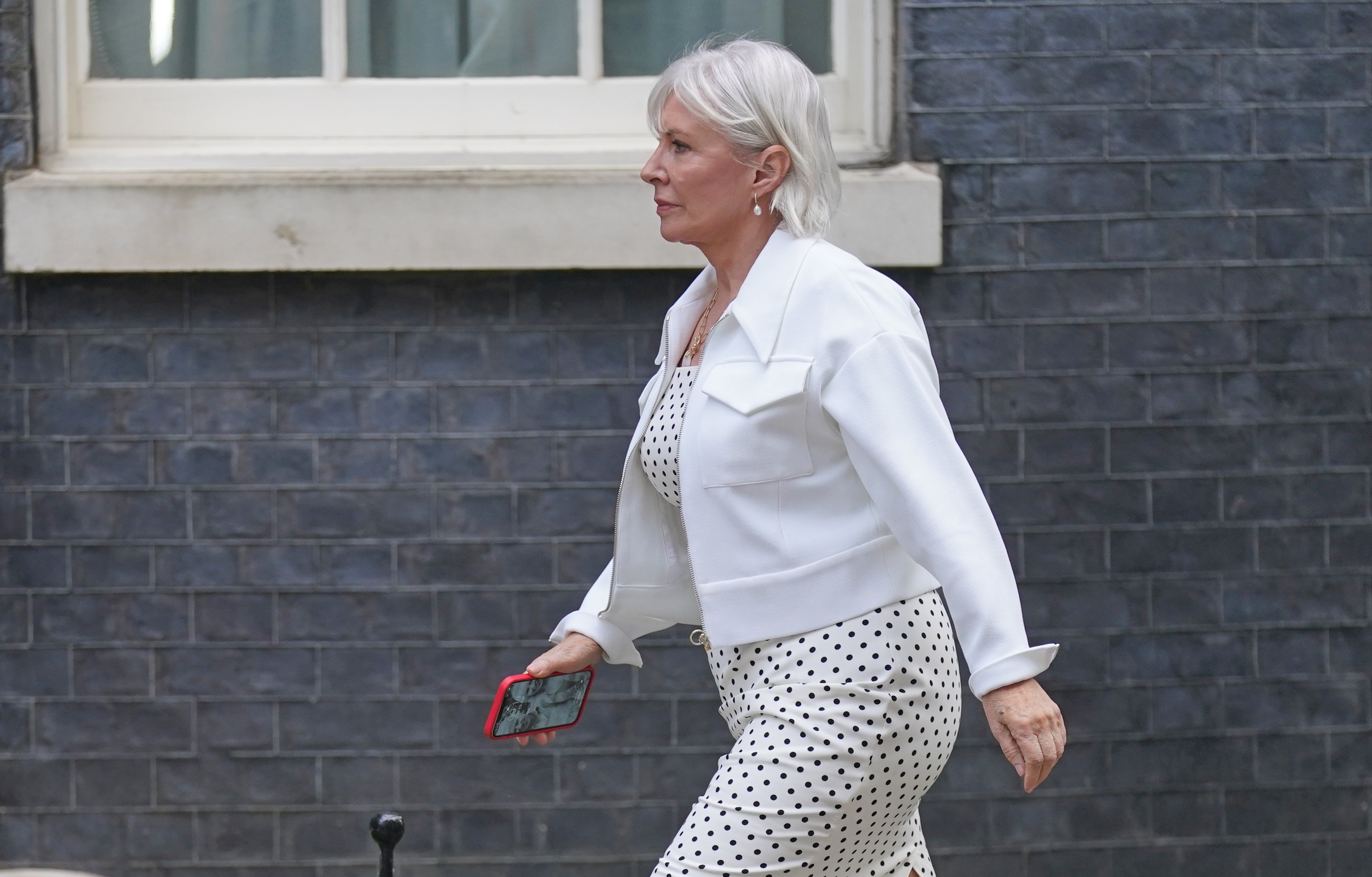Dorries vows to press ahead with Channel 4 privatisation while hitting out at ‘outdated’ BBC funding model
One Tory MP says ministers could ‘do best’ by leaving C4 ‘alone’

Your support helps us to tell the story
From reproductive rights to climate change to Big Tech, The Independent is on the ground when the story is developing. Whether it's investigating the financials of Elon Musk's pro-Trump PAC or producing our latest documentary, 'The A Word', which shines a light on the American women fighting for reproductive rights, we know how important it is to parse out the facts from the messaging.
At such a critical moment in US history, we need reporters on the ground. Your donation allows us to keep sending journalists to speak to both sides of the story.
The Independent is trusted by Americans across the entire political spectrum. And unlike many other quality news outlets, we choose not to lock Americans out of our reporting and analysis with paywalls. We believe quality journalism should be available to everyone, paid for by those who can afford it.
Your support makes all the difference.Nadine Dorries has vowed to press ahead with contentious plans to privatise Channel 4 while hitting out at the “completely outdated” BBC licence fee model.
Despite senior Tories voicing “profound scepticism”, the culture secretary is today publishing a broadcasting white paper confirming the government’s intentions to sell-off C4.
The cabinet minister claimed the overall reforms – forming part of next month’s Queens speech – will revamp decades-old law and “usher in a new golden age” for British television and radio.
Confirming the widely criticised move to privatise Channel 4, the Department for Culture, Media and Sport (DCMS) said it would allow for “greater investment to grow and create more programming”.
Under private ownership, the department added it will “remove a restriction on C4 which effectively prohibits it from producing its own content”, but will still be required to commission programming from independent producers.
Some of the money from the proceeds from the sale will also “deliver a new creative dividend for the sector”, it was claimed.
But speaking during an urgent question on Wednesday, Sir Peter Bottomley insisted the Channel 4 was in “the best state its been creatively and financially for decades” and suggested ministers could “do best by leaving it alone”
“We were told earlier it was supposed to be able to compete with Netflix,” he said. “Netflix’s share price is now 198 dollars, it was 700 dollars — that’s an enormous drop and it’s a loss-making, debt-ridden business”.
The former Conservative cabinet minister Damian Green added that he had “profound scepticism about the wisdom of the course of action that the government is taking on this”.
Labour’s shadow culture secretary, Lucy Powell, said: “Selling of Channel 4 in the middle of a cost-of-living crisis will leave voters scratching their heads about how this will help pay their bills. Their arguments don’t stand up to scrutiny, that’s why Tory MP after Tory MP stood up to pan the central proposal in this white paper”.
The confirmation to press ahead with plans to sell-off C4 also comes as Ms Dorries used an interview with The Spectator magazine to criticise the “completely outdated” BBC licence fee.
“We are going to very soon announce that we are going to be looking very seriously at how we fund the BBC,” she said, adding: “We are ready to implement a new way of funding the BBC.

“We’re going to be looking at how Ofcom hold the BBC to account and then very shortly after that we will be announcing other measures that we are going to put into place to start looking at how the BBC will be funded in the future so that we are well in time to have that in place for the Charter renewal.”
Earlier this year, the culture secretary announced a two-year freeze to the £159 fee, and stressed: “This licence fee announcement will be the last”.
The trailed broadcasting white paper will also include measures to protect audiences watching programmes from harmful material on video-on-demand services, such as Netflix and NOW TV, with a code similar to the broadcasting code, according to DCMS.
The department added: “UK viewers will be given new powers to complain to Ofcom if they see something concerning and will be better protected from harmful material. Ofcom will be given a strengthened duty to assess on-demand providers’ audience protection measures such as age ratings and viewer guidance, with powers to force changes if necessary.
“The maximum fine for regulated VoD services will be £250,000 or an amount up to five per cent of an organisation’s revenue, whichever is higher.”
Unveiling proposals for the broadcasting white paper, Ms Dorries said: “The UK’s TV and radio industries are world-renowned for their creativity, driven by exceptional talent that is delivering groundbreaking public service programming.
“Set against the backdrop of the digital transformation of our viewing habits, today’s plans will revamp decades-old laws to help our public service broadcasters compete in the internet age and usher in a new golden age for British TV and radio.
“This will provide jobs and growth in the future along with the content we all love”.
Join our commenting forum
Join thought-provoking conversations, follow other Independent readers and see their replies
Comments